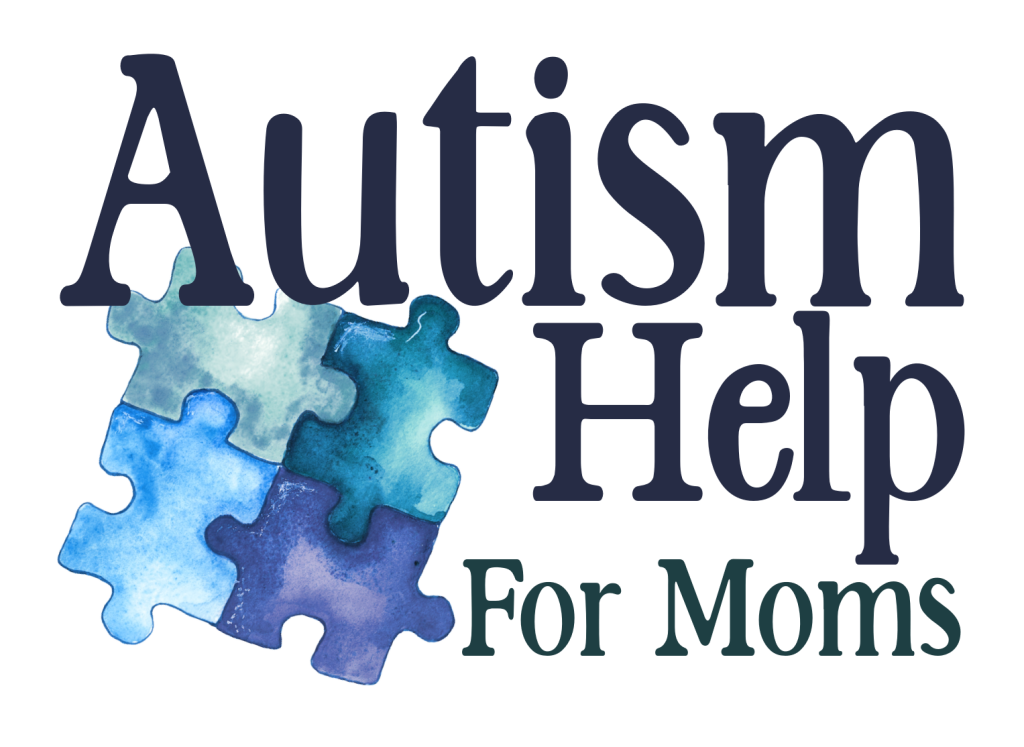If you’re an Autism mom, chances are you’ve heard it—or at least felt it—that label whispered in the hallways or hinted at during team meetings: “That mom.”
You know the one.
-The one who sends follow-up emails when the school misses a service.
-The one who speaks up at IEP meetings.
-The one who keeps receipts, dates, and documentation.
-The one who doesn’t just accept “We’ll try our best” when her child is struggling.
And maybe, after yet another meeting where your concerns were brushed aside, you’ve sat in your car crying, wondering, “Am I really doing the right thing?” or “Why do I feel like the problem when I’m just trying to help my child?”
You are not alone.
This post is for the Autism mom who feels battle-worn. Who loves fiercely but is exhausted. Who shows up every day, not because she wants to make waves—but because she knows her child deserves more.
Let’s talk about how you can advocate effectively—powerfully—without carrying the shame of being labeled “that mom.” In fact, let’s reframe what that means altogether.
Why Advocacy Feels So Heavy
When your child is not getting the support they need at school, it’s not just frustrating—it’s devastating. Watching your child struggle with academics, social settings, or emotional regulation without proper accommodations cuts deep. You want to scream, fix it all, wave a magic wand and make things easier.
But instead, you’re often met with resistance, delays, or empty reassurances.
Over time, this cycle of asking, waiting, and being ignored wears you down. It’s not just exhausting—it can make you question yourself, your worth as a parent, and even your sanity.
You may start to wonder:
- “Am I overreacting?”
- “What if the school staff think I’m a problem?”
- “Why am I the only one fighting so hard?”
But here’s the truth:
You’re not a problem—you’re a pillar.
And the fact that you’re advocating means you’re doing your job as a parent. No shame in that.
Reframing “That Mom”
Let’s flip the script.
If “that mom” means:
- The one who asks hard questions,
- The one who reads every line of the IEP,
- The one who stays up at night researching sensory strategies,
- The one who brings up her child’s needs even when it makes others uncomfortable…
Then proudly wear that title.
Because being “that mom” doesn’t mean being difficult—it means being dedicated.
And honestly? Your child needs someone like you in their corner.
Five Powerful Mindset Shifts for Stronger Advocacy
1. You’re Not Asking for Special Treatment—You’re Asking for Fairness, and that is Your Right!
Accommodations are not extras or favors. They are federally protected rights. The Individuals with Disabilities Education Act (IDEA) and Section 504 exist because children with disabilities have the legal right to a Free and Appropriate Public Education (FAPE).
When you speak up for your child, you’re not making trouble—you’re ensuring that your child has access to what they need to thrive.
Say it with me: “I am not asking for more—I’m asking for what’s fair.”
2. Advocacy Is Not Aggression—It’s Assertiveness
There’s a big difference between being aggressive and being assertive.
Aggression is about overpowering.
Assertiveness is about standing in truth—with calm, clarity, and confidence.
It’s okay to speak firmly. It’s okay to say, “This isn’t working.” It’s okay to follow up and document concerns. Assertiveness doesn’t mean you’re rude. It means you’re rooted in your child’s needs.
Tip: Try using phrases like:
- “Help me understand why this isn’t being implemented.”
- “Can we clarify what support looks like on a daily basis?”
- “What steps do we need to take to address this?”
Your tone can be firm and respectful—and still move mountains.
3. You Don’t Need Permission to Show Up for Your Child
Many moms share that they feel like they’re walking on eggshells. Afraid of being too much. Afraid of offending someone. Afraid of being labeled.
But here’s something to remember: You do not need permission to advocate for your child.
You don’t need approval.
You don’t need to sugarcoat your concerns.
You have a seat at the table—because you are part of the team.
And you’re the most qualified expert on your child in that room.
4. It’s Not Personal—It’s a System
It’s easy to take resistance personally—especially when you’re emotionally invested. But often, the pushback you’re experiencing isn’t about you at all. It’s a reflection of a system that’s underfunded, understaffed, and overwhelmed.
Educators and administrators are often doing their best, but they’re still part of a system that doesn’t always serve neurodivergent kids well.
This doesn’t mean you stop advocating—but it does help you protect your peace. When you stop internalizing the resistance, you free up emotional energy for problem-solving, not people-pleasing.
Practical Steps to Advocate with Confidence (and Less Burnout)
1. Know the Law (Even the Basics Help)
Understanding your child’s rights can boost your confidence instantly. You don’t have to become a lawyer, but learning the basics of IDEA, 504 plans, and IEP timelines can empower you during meetings.
Some helpful questions to keep in your back pocket:
- “Can you help me understand how this aligns with IDEA?”
- “What data are we using to determine progress?”
- “When will this intervention begin, and how will it be tracked?”
When you speak the language of advocacy, people listen.
2. Document Everything
Keep a communication log, store emails, and write down what’s discussed in meetings. This isn’t about being suspicious—it’s about being organized. And I will say it again, don’t worry about the amount you have. 10 FULL file folders were brought to a meeting to get my son BACK on his IEP in 5th grade. When you show up with documents, you are showing that you mean business.
You’ll feel more empowered walking into meetings with clear records. Plus, documentation creates accountability.
Keep it simple:
- Date
- Topic
- What was said
- Action items
This makes follow-up easier and gives you a clear record if issues arise later.
3. Bring Support
You don’t have to walk into meetings alone. You can bring:
- A spouse
- A friend
- An advocate
- A therapist
- Another parent who’s been through it
Having a second set of ears helps you feel less isolated—and ensures nothing gets missed.
You deserve backup, and you don’t have to go it alone.
4. Practice Self-Regulation Before Meetings
Your nervous system matters. If you’re going into meetings with anxiety bubbling over, your message may not land the way you hope. Take 5–10 minutes before meetings to ground yourself.
Try:
- Deep belly breathing
- Positive affirmations (like “I am calm and clear.”)
- Prayer or meditation
- Squeezing a stress ball
Remember: Your calm is your superpower—not because you have to be quiet, but because it helps you speak with clarity and strength.
What to Do When You’re Feeling Defeated
Even when you do everything right, there may be moments you feel like giving up.
The tears in the car.
The nights spent questioning your worth.
The days when your child comes home dysregulated, and you wonder if anything is working.
Please hear this:
You are not failing.
The system may be failing.
The support may be lacking.
The school may be overwhelmed.
But you are still showing up.
And that, dear momma, is heroic.
When you’re at your limit, try this:
- Take a break: Advocacy is a marathon, not a sprint. You are allowed to rest without guilt.
- Connect with other moms: Find a support group or online community of Autism moms who understand.
- Remind yourself of your why: Look at your child. Their growth, their spark, their resilience. They are your why.
Let’s Redefine Advocacy Together
Let’s redefine what it means to be “that mom.”
Let it mean the mom who:
- Doesn’t give up.
- Learns, listens, and leads.
- Advocates not out of anger, but out of fierce, unrelenting love.
Let it mean a mom who sees her child’s potential so clearly, she’s willing to push through every meeting, misunderstanding, and misstep to help the world see it too.
Let it mean you.
Because the truth is, your voice matters.
Your voice opens doors.
Your voice gets services started.
Your voice builds bridges.
Your voice protects futures.
You Are Your Child’s Safe Harbor
Momma, the way you advocate now is teaching your child what it means to stand tall, speak up, and believe in their worth.
Even if your voice shakes.
Even if you’re exhausted.
Even if no one else understands.
You are showing them how to navigate a world not built for them—with courage, creativity, and compassion.
That’s not “being difficult.”
That’s being devoted.
You don’t have to be perfect.
You don’t have to do it all alone.
You just have to keep showing up—with love in your heart and fire in your soul.
And if being “that mom” gets your child the support, understanding, and opportunities they deserve?
Then wear that badge with pride.
You’ve Got This. And I’ve Got You.
If you’re ready to feel more supported on your advocacy journey, I’d love to help. Whether you need guidance navigating the IEP process, calming tools for stressful meetings, or just a reminder that you’re not alone—I’m here and my Autism moms guide to the IEP process is here for you!
Let’s make advocacy empowering—not exhausting.
Because you and your child? You both deserve to thrive.
❤With you every step,
Katie
Fellow Autism Mom & Advocate


